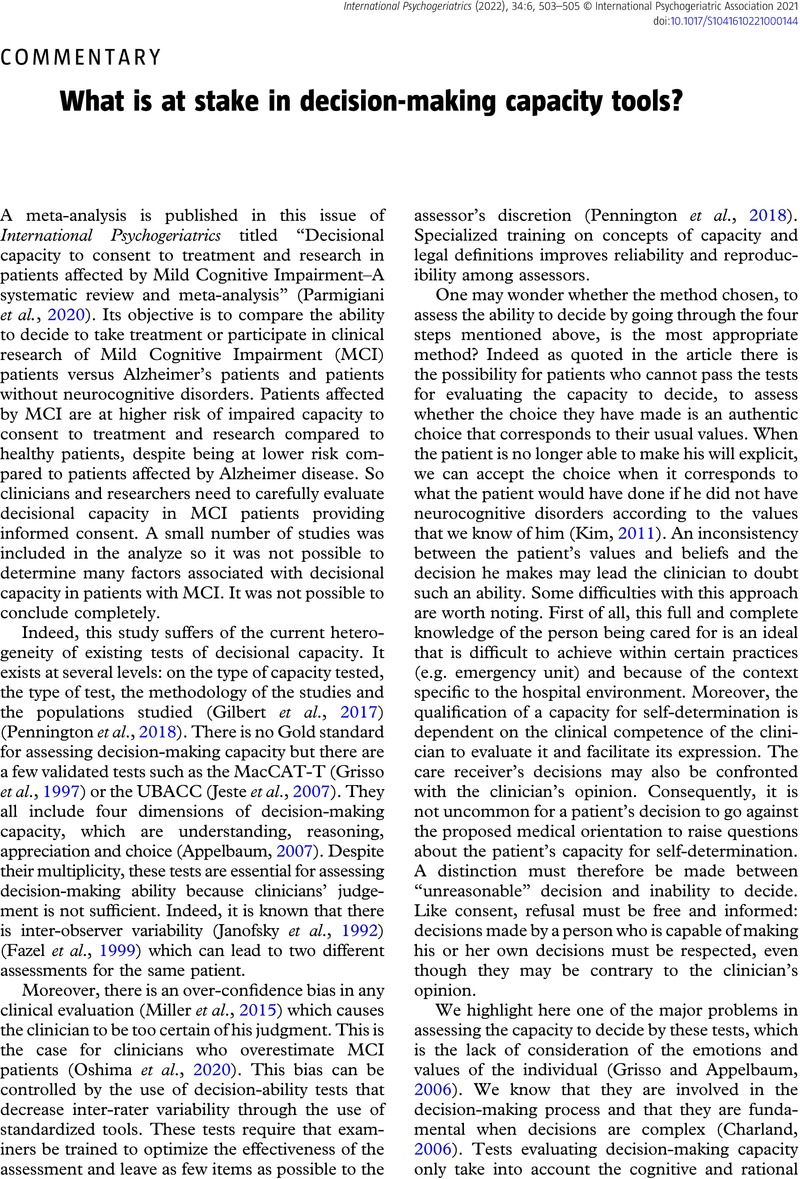Crossref Citations
This article has been cited by the following publications. This list is generated based on data provided by Crossref.
Sullivan, Karen A.
Purser, Kelly
Graham, Karen
and
Parkinson, Lauren
2023.
Public awareness of legal decision-making capacity and planning instruments in dementia: implications for health care practitioners.
Psychiatry, Psychology and Law,
Vol. 30,
Issue. 4,
p.
565.





